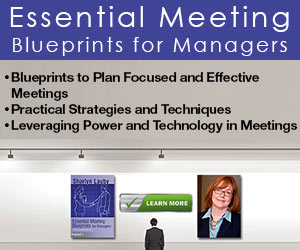Estimated reading time: 4 minutes
We recently published an article with tips for first time supervisors. If you didn’t see it, I hope you’ll check it out. It occurred to me afterward, that the tips were very focused on being a supervisor and interacting with employees. Don’t get me wrong, that’s important. But there are also some things that new supervisors should do that aren’t necessarily focused on employees, like interacting with your boss and peers.
When you’re a new supervisor, it can be difficult to maneuver office politics and manage relationships. You want to make a good impression and you have things that must get done. There are times when it can be incredibly overwhelming and, at the same time, a fantastic learning opportunity. Here are a few things new supervisors should consider during their first 6 months:
- Get to know your boss. THIS is the number one thing on your list. Yes, this person hired you and they want you to be successful. But do not blindside them. You want to understand 1) what you can do and not tell your boss, 2) what you can do and tell your boss later and 3) what you need to tell your boss immediately.
- Learn your company and industry. Even if you were promoted from within, it’s possible there are things you need to learn. Company financials, budgets, market share, customer satisfaction, etc. As a supervisor, you are expected to have knowledge of the operation – regardless of your department.
- Find out what your peers expect. You have a great sense of the competencies for your job. Now, it’s time to confirm those with the individuals that you have to work with every day. Trust me, they will very much appreciate being asked the question, “What do you expect from me and the team?”
- Build a relationship with your team. Find out the background and experience of your team members. What are their goals? Let them find out the same about you. Also make sure they know what other departments expect of them. Maybe get their feedback on the responses. Do they agree or disagree?
- Resist the temptation to immediately create change. It’s very easy to say, “This is what we did at ABC company.” Or “I prefer to do XX over YY.” Always ask yourself if something really needs to be changed – at least initially. You’re building credibility and a reputation. Employees want to know that you’re taking the time to evaluate all options before creating change.
- Touch everything in your office. What I mean here is open the drawers, look at the files, etc. Understand how the office works. Think of this as a knowledge management activity. What you discover might shed some light on the changes you would like to implement. You need to understand office logistics to make good decisions.
- Make a list, then prioritize. You’re going to see a lot of things that you want to change or that don’t make sense. Unless they are things that are hazardous, unethical, or illegal, it might make sense just to take note of them. Then do your homework – ask employees why they exist. Find out the history. Then figure out what to tackle first.
Even when you’ve been hired to make change happen in the organization, you have to take time to build relationships with the team and understand the organization. Every company’s interpretation of “change agent” is different.
It can be very tempting to want to move fast and make an impact. New supervisors should take the time to get to know the team and understand where to start. It’s important to get the priorities right.
Image captured by Sharlyn Lauby while exploring the streets of Salt Lake City, UT






